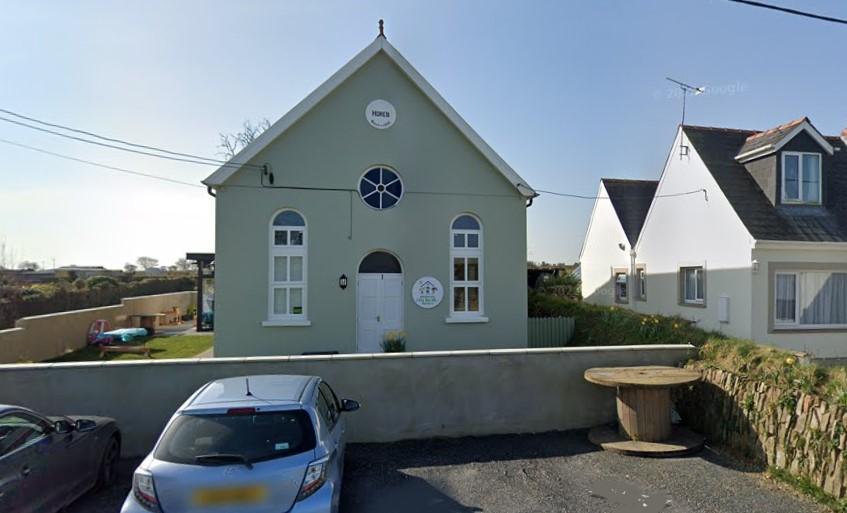Education
WG to cut classroom bureaucracy

£1.28M of new investment to help reduce unnecessary workload for teachers has been announced by the Education Secretary Kirsty Williams.
The funding will support the creation of new school business managers in eleven local authority areas.
The two year pilot will see groups of primary schools having a school business manager to provide dedicated support for head teachers and teachers so they can better focus on raising standards and the needs of pupils.
School business managers can help organise and run a range of non-teaching activity in a school, from finance, administration and procurement, freeing up head teachers and staff to focus on leadership and teaching.
The project is part of a range of Welsh Government actions to help address teachers’ concerns over their workload, including a new guide launched today on how teachers can reduce unnecessary activity, with advice on planning lessons, marking and assessing and collecting data.
Education Secretary Kirsty Williams said: “I am delighted to announce funding of almost £1.3m to fund new school business managers to take on some of the non-teaching responsibilities. This will free up heads and teachers to focus on what matters most – their pupils.
“We are working closely with the profession to help teachers be the best they can be for the benefit of pupils. I want to get the basics right and let teachers get on with teaching so we can continue to raise standards.
“Reducing unnecessary workload and enabling teachers to spend more time supporting pupils’ learning is so important. The resources developed with unions and others and published by Estyn today will help ensure that workload issues are considered and we will continue to take action in this area.”
The Welsh Government is supporting these new pilot projects by providing funding of £642,000 over a two year period which will be match-funded by local authorities for a total £1,284,000.
Local Authorities receiving funding include:
- Vale of Glamorgan
- Cardiff
- Carmarthenshire
- Powys
- Swansea
- Rhondda Cynon Taf
- Torfaen
- Conwy
- Anglesey
- Monmouthshire
- Caerphilly
Chris Keates, General Secretary of the NASUWT-The Teachers’ Union, said: “The NASUWT has been at the forefront of campaigning on teacher workload across the UK for many years and has been in continuous dispute with Welsh Government on the issue since 2011.
“This guidance is a first step along the road to providing teachers with the professional agency to exercise control over their workload. This is something that has been sadly lacking in the past.
“Of course, the effectiveness of the guidance will require school leaders, local authority school improvement officers, consortia challenge advisors, school inspectors, government officials and other relevant personnel within the education system in Wales to demonstrate due regard for the responsibility they have in managing and reducing the workload of teachers in compliance with the statements on the poster and the concertina cards.”
Rex Phillips, NASUWT National Official Wales, said: “With over 40,000 concertina cards and 3,000 posters going into schools after today’s launch, there should now be no misunderstanding on what teachers ‘should’ and ‘should not’ do and what the Welsh Inspectorate, Estyn, requires for school inspections.
“The NASUWT expects the posters to be displayed prominently in every staffroom in every school and welcomes the decision to distribute the concertina card to every teacher.
“This initiative will provide teachers and, where necessary the NASUWT, with the ability to take to task those who would continue to place unnecessary workload burdens on teachers in terms of daily or weekly lesson plans, marking and feedback to pupils and data collection – three of the biggest drivers of excessive workload.”
Community
Letterston nursery equipment could be stored in cemetery

A CALL for a storage container for a “well-established and valued” Pembrokeshire children’s nursery in a nearby cemetery has been submitted to county planners.
In an application to Pembrokeshire County Council, Diane Evans of Meithrinfa Do Re Mi Nursery seeks permission for the installation of a storage container, partially in retrospect, at Horeb Cemetery, Station Road, Letterston.
A supporting statement says: “The container is required to provide essential ancillary storage to support the lawful and established nursery use within the [nearby] chapel building.
“The site forms part of an active cemetery, owned and managed by a group of trustees. The applicant is one of the trustees and has obtained formal permission from the trustees for the container to be sited on this land. The area selected previously comprised a large, longstanding mound of garden waste which has now been removed. The land has been levelled and prepared with a hard-standing base.
“The container will be used solely for storage of nursery equipment and materials, including outdoor learning resources, maintenance equipment, and items required to manage both the nursery grounds and the cemetery land. No additional operational activity will take place within or around the container.”
It adds: “The day nursery provides childcare for approximately 83 children from the local community and employs 21 staff, all of whom live locally. The nursery is a well-established and valued community facility, supporting local families and contributing positively to the local economy. Adequate storage is essential to ensure the safe, efficient and compliant operation of the nursery. The chapel building itself has limited internal storage, making external ancillary storage necessary.”
It says the nursery “operates with a strong community focus and promotes sustainability and environmental awareness,” with plans to soften its appearance through the planting of trees, shrubs and flowers.
It added: “Children will take part in a ‘sow, grow and give’ project, growing cut flowers from seed. These flowers will be made available to the community, particularly visitors to the cemetery, who will be invited to cut flowers to place on the graves of loved ones. This initiative enhances biodiversity, strengthens community links, and adds social value to the cemetery space.”
The application will be considered by county planners at a later date.
Education
Parents urge council not to close Ysgol Llansteffan

Campaigners call for delay amid Welsh language investigation and rising pupil numbers
PARENTS and campaigners have urged Carmarthenshire County Council’s Cabinet not to recommend the closure of Ysgol Llansteffan when members meet on Monday (Feb 23).
The appeal comes ahead of a proposed decision that could see the village’s Welsh-medium primary school close in August this year.
The Ysgol Llansteffan Parents and Teachers Association (PTA), supported by Cymdeithas yr Iaith, has written to councillors calling for the process to be halted, arguing that key evidence remains incomplete and that the case for closure is flawed.

Among their concerns is an ongoing investigation by the Welsh Language Commissioner into the language impact assessment used to support the closure proposal. Campaigners say it would be inappropriate for the council to make a final decision before the investigation is concluded.
They also claim no council decision-makers have visited the school to verify the information used in the proposal, despite significant changes in circumstances, including a rise in pupil numbers to 17 as of January 2026.
The PTA argues that this increase undermines earlier projections and raises questions about the reliability of longer-term forecasts used to justify closure.
Financial concerns have also been raised. While council documents suggest annual savings of around £112,000, campaigners say transport costs of approximately £50,000 per year and inflationary pressures have not been clearly accounted for, potentially overstating the net benefit.
Parents say closure would remove parental choice and risk damaging Welsh-medium education in the area by forcing some children to travel further or potentially move into English-medium provision.
Cymdeithas yr Iaith has backed the PTA’s call, warning that the council’s objection report failed to properly address concerns that insufficient school capacity elsewhere could push pupils out of Welsh-medium education altogether.
Campaigners have also criticised what they describe as factual inconsistencies in the council’s reports, including outdated enrolment figures and conflicting capacity estimates for neighbouring schools.
The PTA has asked the council to defer any decision until updated data is available, the Commissioner’s findings are published, and alternative options for sustaining the school have been fully explored.
In their letter, parents stressed they remain willing to work constructively with the council to develop a long-term solution that would allow the school to remain open as a sustainable Welsh-medium provision for the community.
Carmarthenshire County Council has previously said the proposal is intended to address falling pupil numbers, high surplus places and financial pressures at the school. Cabinet members were told earlier in the process that neighbouring Ysgol Llangain would have sufficient capacity to accommodate pupils if the closure proceeds, and that transferring learners would provide access to improved facilities and help ensure long-term sustainability of education provision in the area.
The final decision is expected to be taken by full council in March following the Cabinet’s recommendation.
Crime
Teacher stabbed by pupil criticises school weapon scanner plans

Victim says teachers should not be turned into “security guards” after Ammanford attack
A TEACHER who was stabbed multiple times by a pupil at a Carmarthenshire school has criticised proposals to introduce weapon scanners in classrooms, warning they risk shifting responsibility onto already overstretched staff.
Liz Hopkin was attacked by a teenage student at Ysgol Dyffryn Aman, Ammanford, in April 2024, in an incident that shocked communities across Wales.
Speaking to BBC Radio Wales, Ms Hopkin said she does not believe scanners are “the answer” to preventing violence in schools and warned they could undermine relationships between teachers and pupils.
She said the focus should instead be on preventing young people from bringing weapons to school in the first place.
“This isn’t about preventing people bringing knives into school in the first place. This is just about detection,” she said.
“If by the time you’ve got the knife in school, you’ve missed so many opportunities prior to that to stopping that knife coming in in the first place.”
Ms Hopkin also warned that introducing scanning responsibilities could place teachers in unsafe and inappropriate situations.
“To stop putting the responsibility onto schools — we already have enough responsibility with less and less and less resources,” she said.
“You’re adding the role of security guard to teachers who are trying to build relationships with young people.”
Despite suffering serious injuries in the attack, she said she still did not believe scanners were the right approach.
“In my own head, as somebody who’s been right at that point where I’ve been stabbed — I was stabbed five times and feared that I would die — I still don’t think it’s a good idea,” she said.
The Welsh Government told the BBC that its work around weapons in schools forms part of a wider strategy to improve behaviour, with a strong emphasis on prevention rather than enforcement.
Officials said any decision to use scanners would be made by individual local authorities, and there is no expectation that teachers or school staff should carry out security duties.
Some councils have already trialled handheld scanners. Cardiff Council has supplied them to schools, but they are only used when there is a clear concern a pupil may be carrying a weapon.
The stabbing at Ysgol Dyffryn Aman led to renewed debate about school safety across Wales, including behaviour management, pupil support services, and funding pressures facing education.
Ms Hopkin added: “I would never ever suggest that anybody put themselves at risk to check. That’s not our role.”
(Image: BBC)
-

 Health5 days ago
Health5 days agoWithybush loses emergency surgery in shock health board decision
-

 Health4 days ago
Health4 days agoHealth board confirms major hospital changes across west Wales
-

 Health3 days ago
Health3 days agoConcerns grow over Bronglais stroke plans as politicians demand clarity
-

 Health5 days ago
Health5 days agoHealth board: Changes will bring “resilience and sustainability” to West Wales services
-

 Local Government2 days ago
Local Government2 days agoCandidate who withdrew from Hakin race will still appear on ballot paper
-

 Business7 days ago
Business7 days agoMS’s host business advice surgery following demand from Business Rates Online Forum
-

 Crime7 days ago
Crime7 days agoMan charged with GBH with intent following incident involving ‘Pembrokeshire Patriot’
-

 Crime7 days ago
Crime7 days agoTeen given community order after assaulting police officer at hospital





























